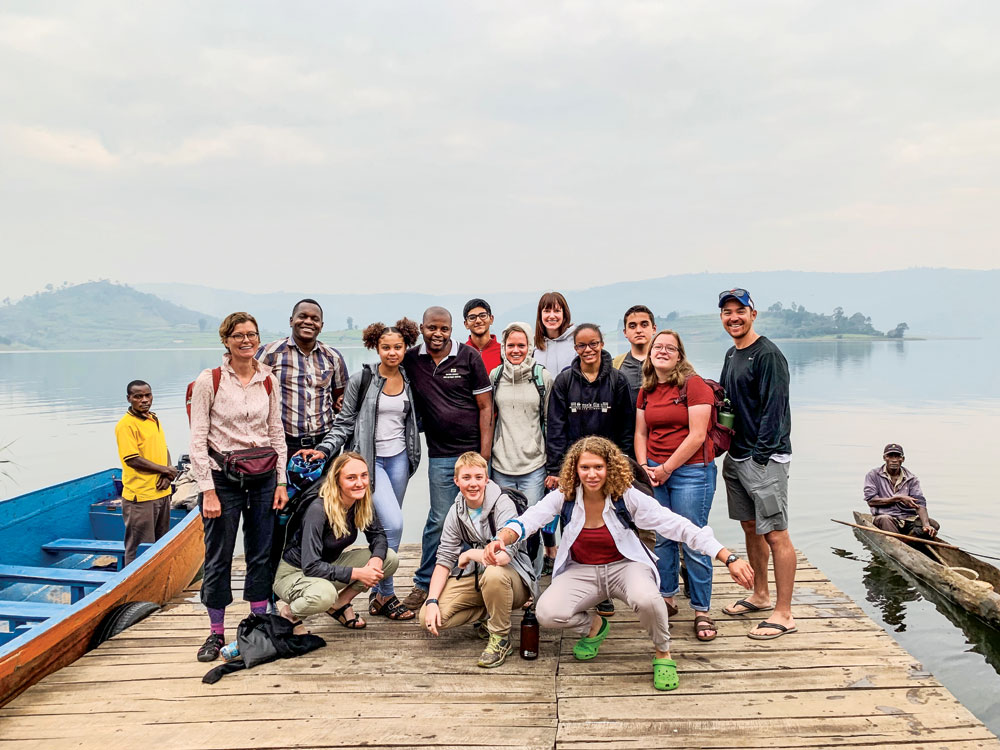
DSST-Montview students and staff pose on a dock on Lake Bunyonyi, in southwestern Uganda. Photos courtesy of
Africa trip participants
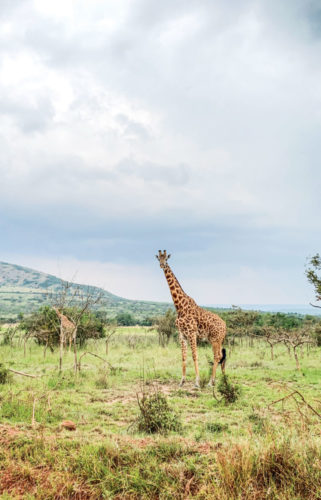
Giraffes were among the wildlife students observed in eastern Rwanda’s Akagera National Park. The park is home to zebras, elephants, lions, hippos, and crocodiles as well.
An Ebola outbreak did not stop eight DSST-Montview seniors from participating in a school-sponsored trip to Rwanda and Uganda this summer. The trip, which is in its fifth year, allows students to explore local agriculture, biology, and conservation issues while promoting greater cross-cultural understanding.
“There was a little bit of fear of Ebola; not far from where we were staying in Uganda, there was a small outbreak,” says Zoe Vandal, who hopes to study international development at Barnard College in New York after graduating from DSST. Rather than quell their openness to experiencing new countries, however, students’ health anxieties strengthened their comradery, according to Vandal. She and her peers allayed each other’s concerns even as they reminded each other to take their malaria tablets every morning.
During their four days in Rwanda, the group camped in Akagera National Park, surrounded by an electric fence. They met with beekeepers as well as local banana beer manufacturers. A half-day safari allowed them to see giraffes, elephants, zebras, and hippos, and they learned about conservation efforts as well as the impact of poaching on wildlife and communities. In Uganda, students visited a school and a farming project that employs resources from Global Livingston Institute (GLI), a major underwriter of the trip.
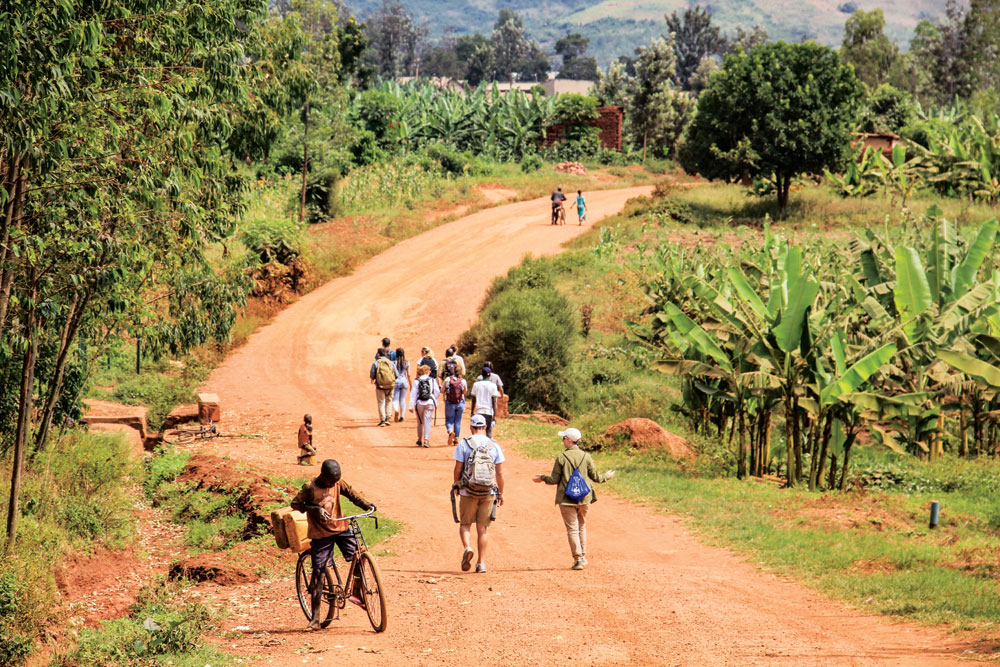
Teachers and students walk and talk with local community members just outside of Akagera National Park.
For Ray Roberts, the 26-hour journey to East Africa marked his first trip outside of the US. Needless to say, it was a far cry from his furthest previous travel, to Pennsylvania. Roberts employs the phrase “eye-opening,” several time as he conveys the transformative nature of this trip. Along with the science he saw in practice, going to Africa drove home how many of the tropes about the continent disseminated in the media and in US culture—of poverty and hunger—are incorrect. “Our western perspective of developing countries and especially those in Africa is very wrong…it’s an ignorant view of Africa that I grew up with,” he acknowledges.
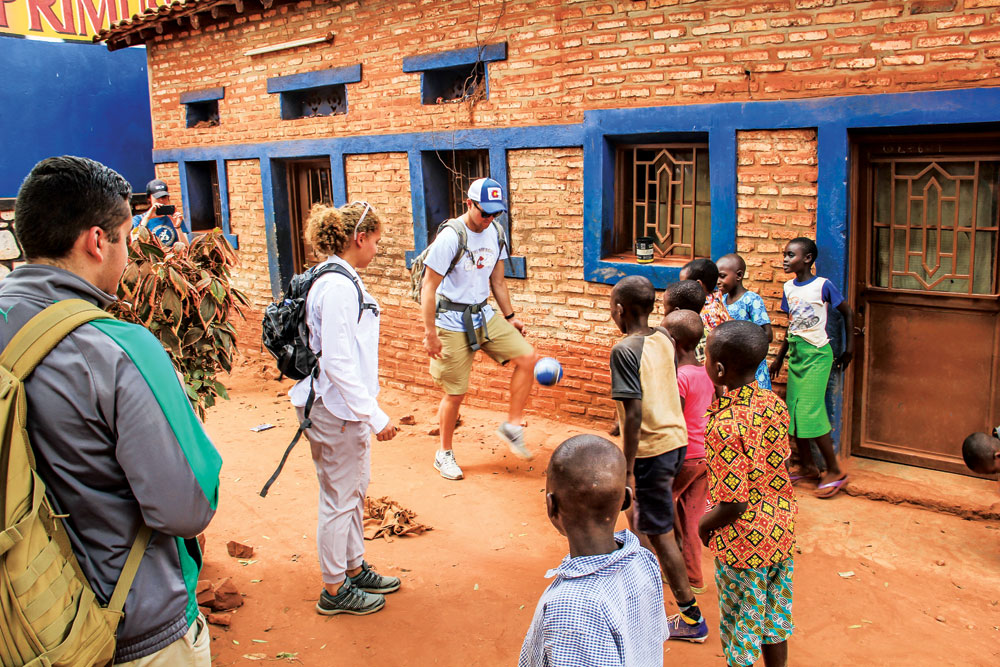
Teacher Jonathan Chan and senior Natalie Smink pass a soccer ball around with locals in Rwanda.
“I think there’s a white supremacist, western supremacist view of what progress and being civilized is,” says Roberts. He faults colonialism for imbuing people in the US with notions of progress, development, and civilization without a real understanding of other cultures’ values and lifestyles. “Having that perspective regardless of where you go or what you do, having a perspective of people who live differently than you, people who may or may not be less privileged than you, it makes you want to change things for the better,” says Roberts.
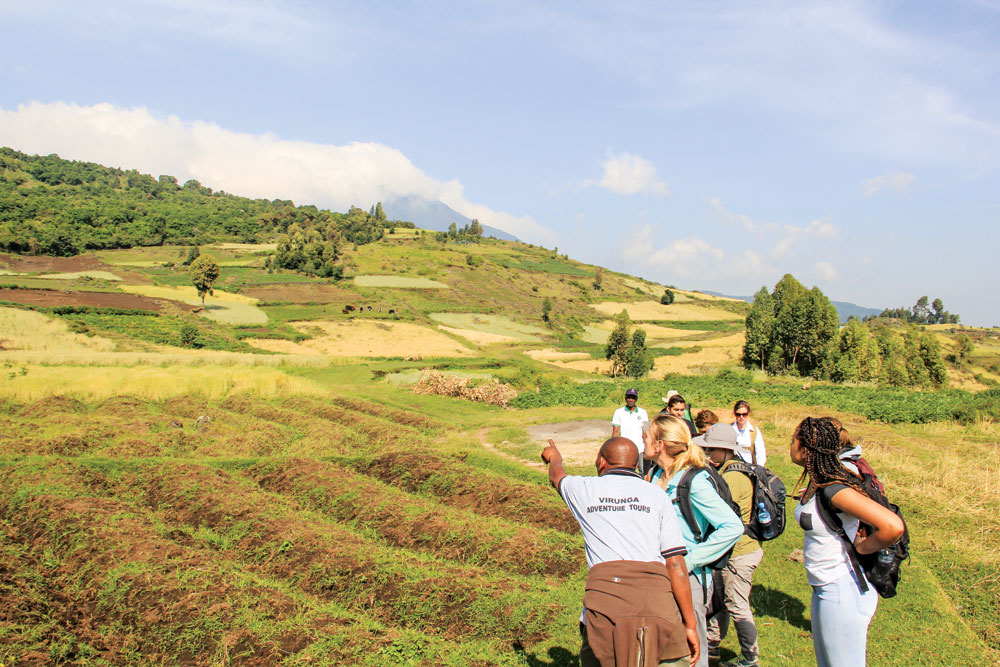
Students take in the views on the hills of Mgahinga National Gorilla Park in southwestern Uganda.
Along with this deeper understanding of the world, Roberts returned from Africa with a stronger sense of direction for his academic and professional future. Though he’d considered chemistry or another scientific field prior to the trip, seeing small-scale and sustainable farming practices in Africa convinced him that he wants to pursue botany. “Here in America we have a ton of technology and modern equipment….[In Uganda] they rely a lot on weather, they rely a lot on rain; the crops they grow are very dependent on the climate….it was really awesome to see how people live in a different way.”
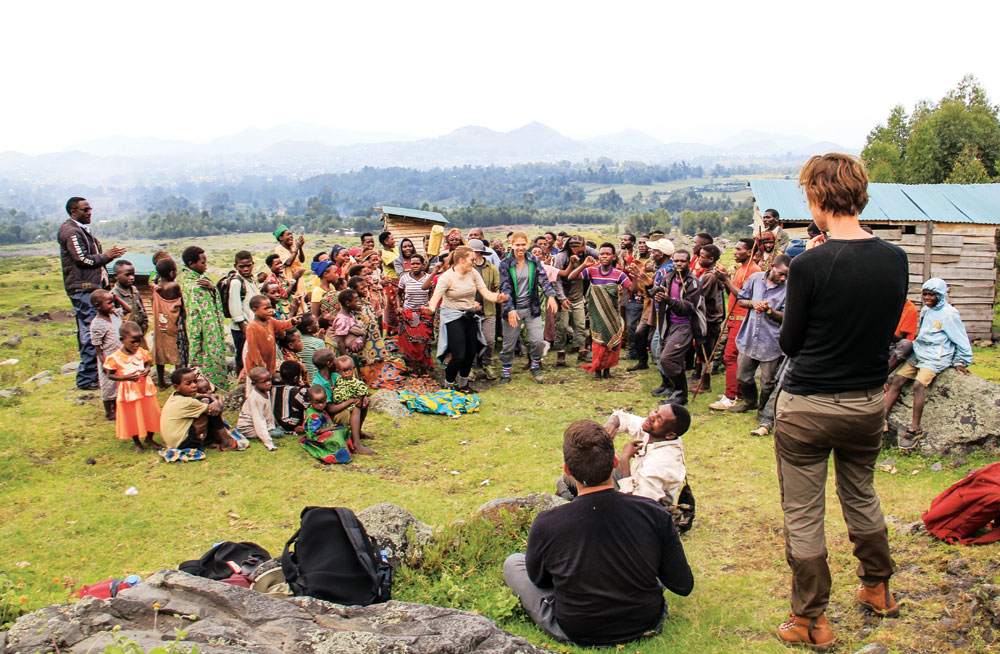
Seniors Zoe Vandal and Natalie Smink dance to the beat of the drum with the Batwa tribe.
Vandal seems equally impressed by the Ugandan agricultural practices she saw. Like Roberts, she speaks admiringly of the family-owned farms. Rather than focus on export-oriented agriculture, families grow what they need to feed themselves and their communities, including mangos, bananas, potatoes, and a variety of grains. Both students commented on the very different relationship between individuals and their food and environment than that which is typical in the US, and appreciated the less materialistic nature of the cultures they encountered.
“I stepped out of my comfort zone and the world that I live in and I went and experienced this other culture that I knew nothing about…the world is a lot bigger than yourself….There are other people in the world whose lives are just as valuable as yours; you’re just different because of where you live,” says Vandal. “No culture is better than another…In our current political climate there are a lot of xenophobic tendencies and an allowance for being fearful of other cultures and other people, and I think that’s an incredibly toxic way of thinking about things. We’re all human and we all deserve the same opportunities. A lot of us just live in different ways.”
Physics teacher Jonathan Chan led the DSST students for the second time this year, and enjoys seeing students’ personal and academic growth. “It hits some stronger than others,” Chan says. One former student decided to pursue elementary education after visiting a school in Uganda; a one-time robotics team member returned to the US and built a drone from scratch, which he delivered to the Rwandan president as an anti-poaching tool. That same student, who is finishing an engineering degree at CU Boulder, has returned four times with the US Army Corps of Engineers to work on different projects.
Chan’s own background is in engineering, and he admits that he continues to learn a lot from the students. As they depart for Africa, students have just completed their junior year biology classes. When he poses the occasional biology question while abroad, “they happily and excitedly” clarify things like “trophic cascades,” which are outside his field. Next year, Chan hopes to add a water treatment and water accessibility component, which would offer a little engineering content as well.
Juniors may go on the trip, and a variety of factors including letters of recommendation and interviews narrow the list of those invited to participate. GLI underwrites about 70% of costs. To ensure that all students who make it through the selection process can go, DSST offers scholarships as well.



0 Comments